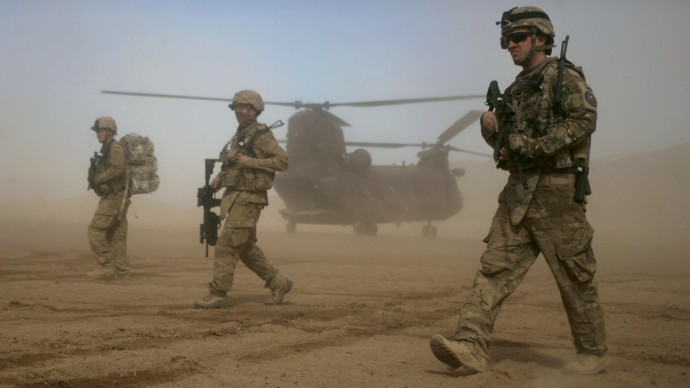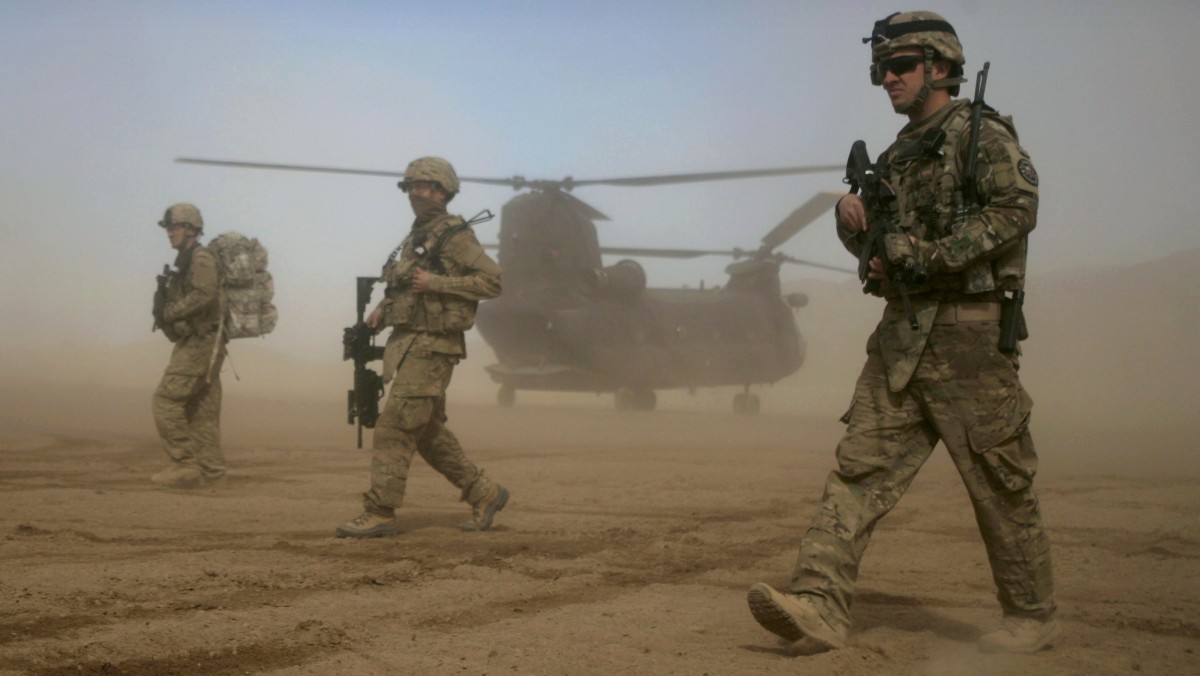
(BRUSSELS) — Five leading EU countries met in Paris (France) last week and called for a new European military structure to manage overseas operations. In the joint communiqué they issued, the foreign and defense ministers of France, Germany, Italy, Poland and Spain called for “an ambitious European policy in the field of security and defense.” It added, “We are convinced that the EU must set up, within a framework yet to-be-defined, true civilian-military structures to plan and conduct missions and operations. … The European Union should be able and willing to shoulder its responsibilities in areas where its security interests and values are at stake.”
France, who hosted the meeting, has long been the driving force for the creation of a European defense structure separate from NATO. It wants to develop specific European strategies to be implemented when necessary through autonomous operations. In 2010, Paris warned its European partners that if things went on like that, Europe would eventually become a protectorate or maybe an American-Chinese condominium. “Europe will be a pawn in the game between the United States and China,” then French defense Minister Hervé Morin said at the time.
The idea of standing operational headquarters specific to the EU is not new. It was proposed for the first time by France, Germany, Belgium and Luxembourg in 2003 after a “Chocolate summit,” as critics dubbed it, held in the midst of the Iraq crisis. At the time, it was heavily resisted by London and Washington, which saw it as an unnecessary duplication of NATO. The proposal was repeated in 2011, but again, the United Kingdom threatened to veto the plan over concerns that it would rival NATO’s command.
The United Kingdom, the leading European military power and the only one, with France, to have a nuclear weapon, has never stopped seeing European defense and the transatlantic partnership as a zero-sum game. The main British concern remains the viability of NATO and the continued involvement of the United States in the defense of Europe. It claims building a European defense would duplicate NATO structures, permanently dissociate EU planning from NATO planning and be a waste of resources. It did not attend last week’s meeting in Paris.
Yet, and paradoxically, the EU’s Common Security and Defense Policy would not have come into being without British leadership. In 1998, an unexpected change of course by London allowed the two major European military powers to put aside their differences on defense issues and hold a summit in Saint-Malo, France. Following the meeting, they issued a declaration that heralded a new phase in European defense. In the document, Tony Blair and Jacques Chirac declare that the European Union must have the capacity for autonomous action, backed by credible military forces, the means to decide to use them and a readiness to do so, in order to respond to international crisis, “while respecting obligations to, and avoiding duplication with, NATO.”
Discussions within Europe
But intra-European discord about the conflict in Iraq in 2003, institutional quarrels and the financial crisis have cooled European passions for a better integration of their national defenses. The general public is increasingly reluctant to defense spending; most Europeans do not perceive a direct military threat to their own territory and hence do not see the use of it. As a result, no leader can float a rise in military spending without facing public criticism and an almost immediate loss of support from his electorate. The past decade has seen at least a 15 percent drop in EU defense budgets.
At the same time, the financial crisis and austerity measures might give a unique opportunity to European ministers to rethink how best to use assets and upgrade capability. It seems all the more necessary that Europe is planning new EU military missions — such as the one in Mali which France, having special links with Africa, hopes will be launched in January. Another important element to be considered is Washington’s strategic shift away from Europe to the Asia-Pacific region announced last year.
Many in Washington would like to see Europeans take responsibility for their own security and assume a more activist role abroad by taking the lead in conflicts that are of interests mainly to them. Throughout the 1990s, for example, in Bosnia-Herzegovina first, then in Kosovo, European armed forces were unable to solve the crisis that broke out in the very heart of Europe, and the United States had to intervene to end the conflicts. The Kosovo war of 1999 also showed how NATO’s European countries were woefully unprepared. They lacked logistics, heavy airlift and intelligence.
Now, 13 years later, they still do. The EU-led NATO operation in Libya exposed the EU’s clear deficiencies in the field of surveillance and reconnaissance assets, communication, strategic transportation, air-to-air refueling capabilities and intelligence. As a result, it was heavily dependent on the U.S. military, technical, intelligence and logistical support.
Americans have been trying for years to convince their European allies to step up their defense spending and upgrade their military capabilities. Officially, NATO members are committed to spending at least 2 percent of GDP on defense. Very few European countries reach that target though. The United States worries that the more the Europeans cut their capabilities, the more people will look to Washington to cover whatever gaps are created. And this is a concern for them at a time when they are facing stringencies of their own.
Dependency on foreign military
EU NATO countries have also been urged to specialize, pool resources and end duplication of military equipment. But the response at this stage has been disappointing. European governments tend to put national sovereignty before collective interests. There is a view that a nation-state will lose its sovereignty — i.e., its ability to decide and act — if countries pool their defense together. They are loath to share their equipment, fearing they would lose control over it or that their technology would be copied.
What European countries do not seem to have realized is that none of them is strong enough anymore to do it alone. Even the continent’s two most important military powers, the United Kingdom and France, no longer have the capabilities to execute the whole spectrum of military operations alone. Not only do they rely on each other but also on the United States, as the operation in Libya revealed. In other words, the direct consequence of Europeans’ lack of cooperation has been their total dependence on the U.S. military umbrella, symbolized by NATO, an alliance dominated to a large extent by Washington. So much for European sovereignty …
The United States, on its part, has always claimed it supports a united Europe. Administration after administration, the standard invocation has been that of “equal partners.” Officially, Washington has always proclaimed its desire to see Europe emerge as a single entity, powerful enough to share with the U.S. both the responsibilities and the burdens of global leadership. This, at least, has been the established rhetoric on the subject.
A one-sided partnership?
In practice though, the U.S. has been less clear and less consistent. Does Washington truly desire a Europe that is a genuinely equal partner in world affair? Or does it actually prefer an unequal relationship? For example, would the United States be prepared to share leadership with Europe in the Middle East, a region that is much closer geographically to Europe than to the U.S. and where several European states have long standing interests? The issue of Israel and Palestine instantly comes to mind. And U.S.-European differences over Iran have been treated by Americans not as an issue between equals but almost as a matter of insubordination.
Building a genuine European defense will require all partners to clarify their positions: Europeans must think much harder about their collective interests and about the way they want to cope with problems in their neighborhood. They can’t assume that Americans will always be around. European countries should also clarify how they want to be perceived in the world and the role they want to play on the international scene. Knowing that European and American interests, priorities and approaches don’t always coincide, do they want to be able to have the means of their policies or do they want to stay forever perceived as the United States’ puppet?
It is also time for London to realize that after the U.S.’ policy shift, the United Kingdom is now much more dependent on its European allies. Also, France should stop thinking that Europe is the means for regaining its past greatness or that possessing the nuclear weapon is enough to make it a global power whose voice has to be respected worldwide. European countries can only be influential in international affairs if they act together. As for the United States, a real choice in favor of a united Europe would entail a far-reaching reordering of NATO, inevitably reducing the American primacy within the alliance.


